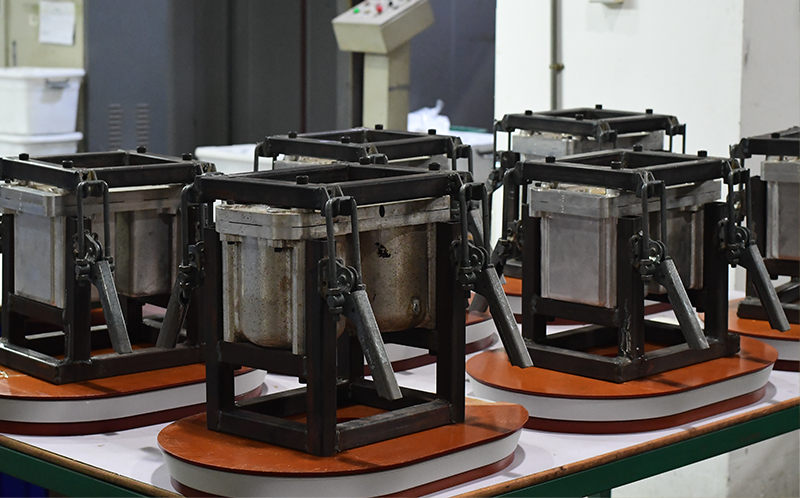Basic Requirements for Rotational Molding Mold Design and Production
 Mar 11,2024
Mar 11,2024

Basic Requirements for Rotational Molding Mold Design and Production
The quality and efficiency of the rotational molding process are highly dependent on the design and production of the mold which is used to shape the product. Every mold and need to be designed and produced adequately to ensure the successful mass production and high-quality product. Below outlines the basic requirements for rotational molding mold design and production.

Mold Design Requirements
Several design considerations must be taken into account during the mold design process. These include
1.Wall Thickness
Ensure uniform wall thickness throughout the mold to ensure consistent material distribution and prevent weak points or stress concentrations. Design the mold with features that promote uniform material flow, such as proper cooling channels and uniform spacing between mold halves.
2.Draft Angles
Incorporate appropriate draft angles into the mold design to facilitate the ejection of parts from the mold and to facilitate the removal of excess material during the rotomolding process. Typically, a draft angle of 3-5 degrees is recommended, but this may vary depending on the product's geometry and complexity.
3. Parting Lines
The parting lines should be carefully planned to minimize their visibility on the final product. This ensures a smooth and aesthetically pleasing surface finish.
4. Cooling System
An efficient cooling system should be incorporated into the mold design to ensure uniform cooling of the melted plastic. This results in a product with consistent properties.
5. Mold Material
Select high-quality materials for the mold construction that can withstand the heat, pressure, and repeated use during the rotational molding process. Common materials used for mold construction include tool steels, aluminum alloys, and ceramics. Aluminum molds are preferred for their excellent thermal conductivity and lightweight properties, while steel and stainless steel molds offer higher strength and wear resistance. The material selection depends on factors such as the desired product quality, production volume, and budget.
Mold Making Requirements
1. Precision and Accuracy
The mold must be manufactured to tight tolerances to meet the specified dimensions and quality standards. Advanced techniques such as CNC machining, casting, or welding should be employed to achieve the necessary precision and accuracy. This ensures that the final product meets the desired specifications and functions correctly in its intended application.
2. Surface Finish
Achieve a smooth and defect-free surface finish on the mold. The surface finish of the mold directly impacts the surface quality of the final product. Utilize appropriate finishing techniques, such as polishing or electrochemical polishing, to achieve the desired surface finish.
3. Heat Treatment
Apply appropriate heat treatments to the mold materials to enhance their hardness, strength, and durability. Heat treatment can improve the wear resistance and dimensional stability of the mold.
4. Corrosion Resistance
Apply protective coatings or surface treatments to the mold to enhance its corrosion resistance, especially for molds made from materials susceptible to corrosion.
5. Prototype Development
Before proceeding with the production mold, it is often beneficial to create a prototype mold. This allows for testing and refinement of the mold design, ensuring that the final mold meets all product specifications and quality standards.
6. Quality Control
Implement rigorous quality control measures during the mold production process, including dimensional inspections, surface finish checks, and material testing. This ensures that the mold meets the required specifications and standards.
The design and production of rotational molding molds are crucial aspects that significantly influence the quality of product being produced, so the experience, expertise and knowledge of the team building tooling for rotational molding should be also evaluated. Light Venus is a trusted manufacturers of rotational molded products for OEM/ODM customer from all over the world. We pride ourselves on having the highest quality standards and rich experience in rotational molding industry. Our development team and production team pay keen attention to every detail. We are able to produce highly customized products for customers with special needs. To learn more about Light Venus’ custom rotational molding capability and service, please feel free to contact us.
 Tel: 0086-13632687993
Tel: 0086-13632687993  Email: roto@lightvenus.com
Email: roto@lightvenus.com

 Home
Home Draft Angles Design Consideration for Rotomolded Products
Draft Angles Design Consideration for Rotomolded Products  You May Also Like
You May Also Like



 Tel
Tel
 Email
Email
 Address
Address








